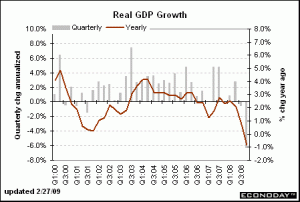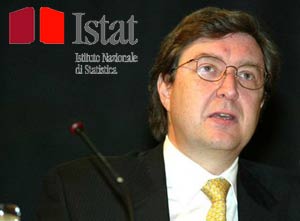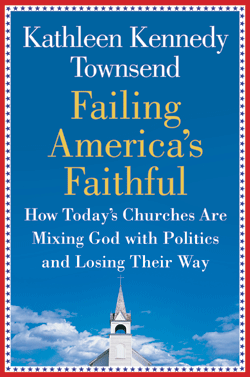 I recently spoke in Pesaro, Italy at a conference on new ways of measuring the well-being of nations and communities. For the past half-century, the yardstick for measuring national progress has traditionally been GDP. But in the last few years, a growing number of economists, concerned citizens, and even heads of state have been asking whether there is more to happiness than a big pile of dollar signs.
I recently spoke in Pesaro, Italy at a conference on new ways of measuring the well-being of nations and communities. For the past half-century, the yardstick for measuring national progress has traditionally been GDP. But in the last few years, a growing number of economists, concerned citizens, and even heads of state have been asking whether there is more to happiness than a big pile of dollar signs.
Politicians, at times, see what should be done, but can’t quite persuade citizens to act–as when Franklin Roosevelt, despite the terrible threat Hitler presented, couldn’t convince Americans they should fight. Right now we’re on the cusp of taking seriously an insight about GDP that my father, Robert Kennedy, originally had more than 40 years ago.
For those who haven’t been reading speeches from 1968, let me remind you what my father said a few days after he announced his candidacy for the presidency. Speaking to students at the University of Kansas, he said:
Too much and for too long, we seem to have surrendered personal excellence and community values in the mere accumulation of material things. Our gross national product, if we judge the United States of America by that, counts air pollution and cigarette advertising and ambulances to clear our highways of carnage. It counts special locks for our doors and the jails for people who break them. It counts the destruction of the redwood and the loss of our natural wonder in chaotic sprawl. It counts napalm and counts nuclear warheads and armored cars for police to fight the riots in our cities. It counts Whitman’s rifle and Speck’s knife and the television programs which glorify violence in order to sell toys to our children.
Yet the gross national product does not allow for the health of our children, the quality of their education, or the joy of their play. It does not include the beauty of our poetry or the strength of our marriages, the intelligence of our public debate or the integrity of our public officials. It measures neither our wit nor our courage; neither our wisdom nor our learning; neither our compassion nor our devotion to our country; it measures everything, in short, except that which makes life worthwhile. And it can tell us everything about America except why we are proud that we are Americans.
For years, my father’s words were viewed not as a practical challenge to the use of GDP but as an affirmation that a nation, like individuals, needs a purpose that is not merely material but spiritual. His policy insight didn’t catch on. With little dissent, we’ve continued to measure the success of a nation by a single number, its GDP.
The number has its uses. Before Simon Kuznets finally produced the measurement in 1941 after working for 14 years to understand what was going on during the Depression, presidents and policymakers had little information to help direct their economic decisions. Herbert Hoover, for example, kept predicting that the United States was on the road to recovery. It wasn’t that he was deliberately misleading the nation; he just didn’t know. In contrast, a few years later, Franklin Roosevelt used Kuznets’ GDP calculations to put the United States on a solid war footing.
Unfortunately what was once a tool has become an end in itself. Politicians and economists are addicted to GDP. Is it growing? By how much? How does it compare to other nations’? Of course, America’s is always the biggest.
 Until recently, the fact that Kuznets himself warned that GDP shouldn’t be used to judge a nation’s well-being hasn’t had much impact.
Until recently, the fact that Kuznets himself warned that GDP shouldn’t be used to judge a nation’s well-being hasn’t had much impact.
Now, at last, the wind has shifted. Around the world, people have begun to realize that not only is a single-minded focus on wealth creation unsustainable economically, but it doesn’t lead to a fulfilling life. The idea that policymakers should at least consider other measures of progress and prosperity is, increasingly, a mainstream position.
Bhutan, for example, is planning to replace GDP with a happiness index. Despite the country’s low GDP, it ranks eighth in the world on the Satisfaction with Life Index, an alternative measure created by University of Leicester social psychologist, Adrian White.
Here in the United States, the National Academy of Sciences is supporting the State of the USA, an initiative to measure our well-being in more than a dozen areas including income, education levels, and health.
A book by the former president of Harvard, Derek Bok, (The Politics of Happiness: What Government Can Learn from the New Research on Well-Being) proposes measures like mental health, commuting time, recreational resources for children, and civics education.
Incredibly, China, the epitome of fast GDP growth, has also adopted happiness as one of its national goals. After 30 years of insisting that “to get rich is glorious” and promoting GDP growth at any cost, China’s rulers are now pushing happiness.
According to the Washington Post, Premier Wen Jiabao prescribed the new measure of progress earlier this year, and the result has been “a torrent of happiness campaigns, happiness surveys, and happiness-promotion measures. For the May Day holiday, 17 giant screens and thousands of small TVs on buses and subways and in office buildings across Beijing showed ‘happy testimonials’ from workers. Beijing Television ran a series of short films called ‘Happy Blossoms’ documenting the apparently contented lives of teachers, factory workers, and others.”
I don’t think China quite gets that happiness requires real political participation, not the jailing of all political opponents. A top-down edict isn’t going to do the trick.
More promising is ongoing work in France. Two years ago, President Sarkozy appointed a high-level commission, including five Nobel Laureates led by Amartya Sen, to improve the measurement of government performance. The final report criticized the current reliance on GDP, saying that it was a poor measure of social progress. It recommended the development of new statistical tools, including ones that measure income distribution, natural-resource depletion, and–yes–happiness.
The French report relied heavily on the work of Enrico Giovannini, one of the leaders of the effort to build better measures of prosperity. It was Giovannini who was the inspiration behind the Pesaro conference (the Festival della Felicita) I recently attended. As I talked to him, I began to realize the scope of the movement.
According to Enrico, the idea of new measurements to replace the GDP came out of conversations he had had a number of years ago with David Walker, then head of the U.S. Government Accountability Office (GAO).
In 2004, Enrico organized a conference in Palermo for the Organisation for Economic Cooperation and Development (OECD). About 500 people were invited, he told me, but then 11,000 people from all over the world went on the website to learn more. “I was amazed,” he said. “There was no advertising about the conference. I discovered a whole new group of people interested in the topic. It was something I never imagined.”
Since then Enrico hasn’t looked back. He launched the Global Project on Measuring the Progress of Societies in cooperation with the European Commission and the World Bank. He organized two other OECD world forums in Turkey (2007) and South Korea (2009) and has plans for more. At the end of the 2007 forum, many international organizations including the OECD, the United Nations, the World Bank, the European Commission, and the Organisation of the Islamic Conferences signed the Istanbul Declaration. It proclaims “an emerging consensus on the need to undertake the measurement of societal progress in every country, going beyond conventional economic measures such as GDP per capita.”
Thousands have participated in these discussions. While economists are involved, the questions are actually philosophical. One of the fiercest arguments revolves around the role of wealth. Many studies indicate that once you’ve achieved a certain level of affluence, more money doesn’t increase your happiness. Other studies disagree. Equally problematic is the calculation of so-called externalities: should a nation’s air pollution, for example, be subtracted from its wealth creation to measure its overall well-being?
At the moment, there is no consensus. And that’s fine. Whatever measures are eventually adopted should not be imposed from the top, as in China, but should grow from numerous conversations all around the world, at conferences, on the web, in living rooms, universities, and workplaces. Our measures of happiness and progress will only be valid if they reflect our diversity as nations, communities, and individuals.
(Cross-posted, with permission of the author, from Atlantic.com)












Leave a Reply